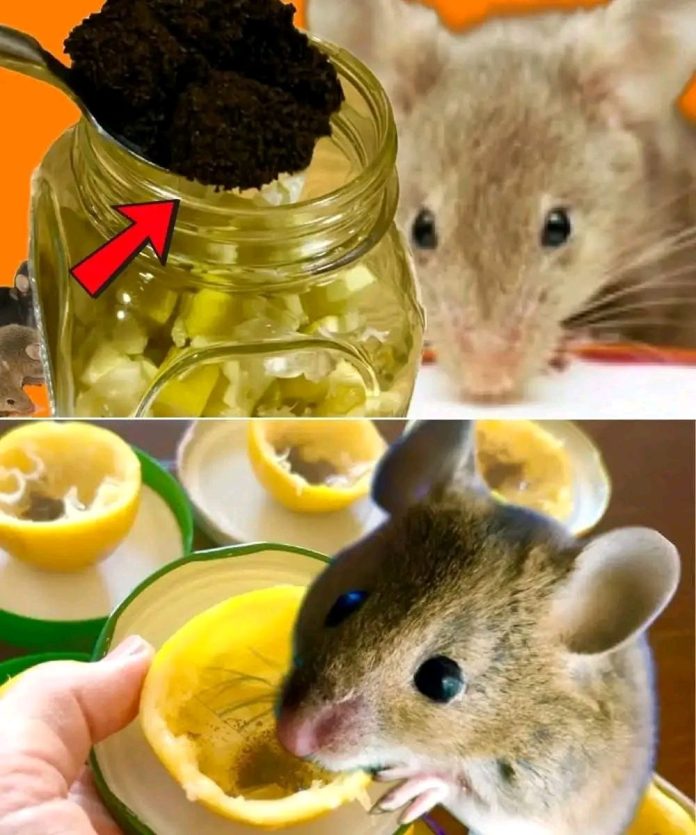Dealing with mice and rats invading your home can be both distressing and challenging. These rodents not only cause structural damage but also pose significant health risks by spreading diseases. While professional pest control services are effective, many homeowners prefer natural, non-toxic methods to deter these pests. Utilizing certain scents and household items can create an environment that rodents find inhospitable, thereby preventing infestations. Below are several natural remedies known to repel mice and rats:
1. Peppermint Oil
Rodents have a strong aversion to the potent scent of peppermint oil. To employ this method, soak cotton balls in pure peppermint oil and place them strategically around your home, focusing on areas where rodent activity is suspected, such as entry points, kitchen cabinets, and basements. Regularly replacing the cotton balls ensures the scent remains strong and effective.

2. Garlic
The pungent aroma of garlic is another natural deterrent for rodents. Placing crushed garlic cloves near potential entry points or mixing garlic with water to create a spray can help keep mice and rats at bay.
3. Cayenne Pepper and Cloves
Both cayenne pepper and cloves emit strong scents that rodents dislike. Sprinkling these spices in areas prone to rodent activity can serve as an effective deterrent. Alternatively, creating sachets filled with these spices and placing them in drawers, cupboards, and near entryways can help keep rodents away.
4. Ammonia
Ammonia mimics the scent of predator urine, which can deter rodents from entering your home. Filling small containers with ammonia and placing them near potential entry points can create an unwelcoming environment for mice and rats. However, exercise caution when using ammonia, especially in households with pets and children, due to its strong and potentially harmful fumes.
5. Used Kitty Litter
The smell of cat urine is a natural deterrent for rodents. Placing containers of used kitty litter near suspected entry points can signal to mice and rats that a predator is nearby, encouraging them to avoid the area. Ensure the litter is kept out of reach of children and pets.
6. Sealing Entry Points
Preventing rodents from entering your home is crucial. Inspect your home for gaps, cracks, and holes, especially around doors, windows, and foundations. Sealing these openings with materials like steel wool, caulk, or metal mesh can effectively block potential entry points, as rodents find it difficult to chew through these substances.
7. Maintaining Cleanliness
A clean and clutter-free home is less inviting to rodents. Store food in airtight containers, promptly clean up spills and crumbs, and dispose of garbage regularly. Reducing clutter eliminates potential nesting sites, making your home less attractive to these pests.

8. Ultrasonic Devices
Ultrasonic repellents emit high-frequency sounds that are unpleasant to rodents but typically inaudible to humans. Placing these devices in areas with suspected rodent activity can help drive them away. However, the effectiveness of ultrasonic devices can vary, and they should be used in conjunction with other methods for best results.
9. Natural Predators
Introducing natural predators, such as cats, can help control rodent populations. The presence of a cat can deter mice and rats from settling in your home. Even the scent of a cat can be a powerful deterrent.
Implementing these natural remedies can create an environment that is unwelcoming to mice and rats, reducing the likelihood of an infestation. It’s important to combine multiple methods for greater effectiveness and to remain vigilant in monitoring for signs of rodent activity. If an infestation persists or becomes unmanageable, consulting professional pest control services is advisable to ensure the health and safety of your household.

















